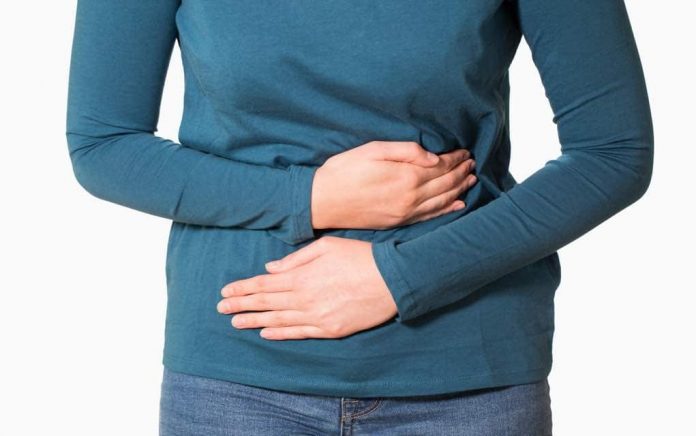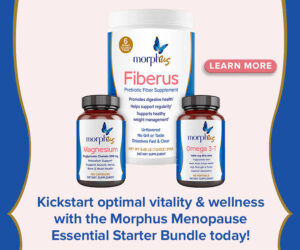
Constipation has been named the “most common digestive complaint in the United States,” and for more than 4 million Americans, it is a frequent occurrence. Even though there are numerous conventional medical treatments for this often uncomfortable condition, they can cause side effects or some dependence. A healthier approach is to adopt common natural remedies to treat constipation, as well as prevent its occurrence.
Generally, constipation is defined as having less than three bowel movements per week. Natural ways to treat constipation fall into two main categories: lifestyle modifications and alternative therapies. Often a selection of options from both can be most effective in restoring and maintaining healthy bowel function.
Take magnesium. Supplementation with magnesium works in two ways. One, it relaxes the muscles in the intestinal walls, which makes it easier for stool to pass through the bowels. Two, it attracts water into the intestines, which stimulates the motility of the bowel and in turn softens stool and causes it to increase in size. These activities trigger a bowel movement.
How much magnesium should you take? When calculating how much magnesium you are consuming every day, you will need to include the magnesium in the foods you eat as well as the amount in your magnesium supplements. The recommended daily amounts of magnesium for adults are 310 mg for females age 18 to 30 and then 320 mg thereafter; and for men, 400 mg for those age 19 to 30 and then 420 mg thereafter.
Read about how to banish bowel backup naturally
Increase water intake. A state of dehydration can cause you to become constipated. The easiest solution is to consume more water. If you are not a fan of plain water, then sparkling water may be even more effective than tap water at relieving constipation. Be sure to avoid sugary sparkling beverages, however, because they can worsen your constipation. [Editor's Note: We recommend the following magnesium supplement Pure Essence Ionic Fizz ™ Magnesium. It's a balanced source of magnesium with other vitamins and mineral.]
Feast on fiber. Although the experts have long encouraged us to include more fiber in our diets to help with constipation and other digestive issues, the messages seem to get lost or we tune them out. At the same time, it’s important for you to know the type of dietary fiber that can help with constipation.
- Insoluble fiber, which is found in vegetables, whole grains, and wheat bran, add more bulk to your stools and make it easier for you to eliminate them.
- Soluble fiber, which is found in seeds, nuts, beans, lentils, oat bran, barley, and some fruits and veggies. This form of fiber absorbs water and softens your stools.
Fiber supplements, such as a non-fermentable soluble fiber called gaur fiber, can be a helpful remedy if you become constipated. Fermentable soluble fibers are found in barley, oats, fruits, and vegetables.
Move it! Although the findings of various studies on the impact of exercise on bowel movements and constipation are mixed, overall it seems that exercise may reduce constipation. Regular brisk walking is recommended, although you might also want to try rebounding, jogging, spinning, swimming, Zumba, or dance aerobics.
Drink caffeinated coffee. Naturally, if you are not a coffee drinker and/or a cup of joe causes you stomach irritation or other discomforts, skip this suggestion. If not, caffeinated coffee has been shown to stimulate your gut with a 60 percent stronger effect than water and a 23 percent stronger impact than drinking decaffeinated coffee. And surprise! Coffee also contains a small amount of soluble fiber as well!
Make friends with beneficial bacteria. Chronic constipation and an imbalance of bacteria in the gut seem to go hand-in-hand. Therefore, introducing probiotic foods and/or supplements to your diet could help prevent and relieve constipation. Probiotic foods include kimchee, kefir, sauerkraut, yogurt, and some cheeses. If you choose a supplement, select one that has several species of live, active beneficial bacteria. Take the recommended dose daily for at least four weeks, because it typically takes that long for results.
Manage and reduce stress. When you are tense and stressed, normal digestion is affected as are hormone levels (including stress hormones) and muscle tension. Practicing stress reduction daily can help prevent and relieve constipation. Some effective suggestions include yoga, stretching exercises, tai chi, meditation, visualization, and progressive relaxation.
Consider senna, a natural laxative. The herbal laxative senna contains glycosides, which are substances that stimulate the nerves in your gut and helps move stool along in your bowel. Although senna is considered to be safe and effective for adults when used for several days, it should not be taken for a prolonged period and never by individuals who have inflammatory bowel disease or who are pregnant or breastfeeding.
Experiment with a low-FODMAP diet. For the uninitiated, a low-FODMAP diet is suggested for individuals who have constipation as a symptom of irritable bowel syndrome. FODMAP stands for fermentable oligosaccharides, disaccharides, monosaccharides, and polyols. This elimination-style diet involves limiting foods high in these compounds and then reintroducing them slowly to identify which ones are tolerable and which ones are not. Even if you have constipation associated with IBS, this diet probably will not be enough to get complete from symptoms.
Read about how FODMAP diet may be the missing link for IBS sufferers
Pick up some prunes. These dried plums get a bad rap, but they are nature’s constipation fighters and they taste great too! Both the fruits and the juice are good for constipation because they contain fiber (the fruit more so than the juice) and sorbitol, a natural laxative. Eat about 7 medium prunes twice daily to remedy constipation.
Eliminate dairy. Many people have an intolerance to dairy, which can cause constipation. You can help identify such intolerance by eliminating milk, cheese, and other dairy foods from your diet and notice if your symptoms improve over a period of a week or two. If you have been counting on dairy foods for the majority of your calcium, be sure to boost your intake of other calcium-rich items, such as leafy greens, beans, almonds, figs, tofu, oranges, sardines, and broccoli.










